- Home
- Diana Palmer
Long, Tall Texan Legacy Page 2
Long, Tall Texan Legacy Read online
Page 2
“Slavery is against everything I believe in,” Colby said. His face grew hard. “Sherman’s conduct was justified.”
John had to bite his tongue to keep back a sharp reply. He could feel the heat of the fire, hear his mother and sister screaming as they fell in the maelstrom of crackling flames….
“You owned slaves?” Colby persisted curtly.
John gritted his teeth. “Sir, my mother and sisters and I worked on a farm outside Atlanta,” he said, almost choking on memories despite the years between himself and the memory. “Only rich planters could afford slaves. My people were Irish immigrants. You might recall the signs placed at the front gates of estates in the North, which read, No Colored Or Irish Need Apply.”
Colby swallowed hard. He had, indeed, seen those signs.
John seemed to grow another inch. “To answer your question, had I been a rich planter, I would have hired my labor, not bought it, for I do not feel that one man of any color has the right to own another.” His green eyes flashed. “There were many other small landowners and sharecroppers like my family who paid the price for the greed and luxury of plantation owners. Sherman’s army did not discriminate between the two.”
“Excuse me,” Colby said at once. “One of my laundresses back home had been a slave. Her arms were livid with scars from a mistress who cut her when she burned a dress she was told to iron.”
“I have seen similar scars,” John replied, without adding that one of the co-owners of his ranch had such unsightly scars, as well as his wife and even their eldest daughter.
“Your mother and sisters live with you?” Colby asked.
John didn’t reply for a few seconds. “No, sir. Except for a married sister in North Carolina, my people are all dead.”
Colby nodded, his eyes narrow and assessing. “But, then, you have done well for yourself in Texas, have you not?” He smiled.
John forced himself to return the smile and forget the insults. “I will do better, sir,” he said with unshakeable confidence. “Far better.”
Colby chuckled. “You remind me of myself, when I was a young man. I left home to make my fortune, and had the good sense to look toward trains as the means.”
John twirled his hat in his big hands. He wanted to approach Colby about his spur, which would give him the opportunity to ship his cattle without having to take the risk of driving them north to railheads in Kansas. But that would be pushing his luck. Colby might feel that John was overstepping his place in society and being “uppity.” He couldn’t risk alienating Colby.
He shifted his weight. “I should go,” he said absently. “I had no intention of taking up so much of your time, sir. I wanted only to offer you the freedom of my ranch for hunting, and to inquire about the health of your daughter after her unfortunate accident.”
“Unfortunate accident.” Colby shook his head. “She is the clumsiest woman I have ever known,” he said coldly, “and I have found not one single gentleman who lasted more than a day as a suitor.”
“But she is charming,” John countered gallantly, his eyes dancing. “She has a sense of humor, the ability to laugh at herself, and despite her companion’s rudeness, she behaved with dignity.”
Colby was listening intently. “You find her… attractive?”
“Sir, she is the most attractive woman I have ever met,” John replied without choosing his words.
Colby laughed and shook his head. “You want something,” he mused. “But I’m damned if I don’t find you a breath of fresh air, sir. You have style and dash.”
John grinned at him. “Thank you, sir.”
“I may take you up on that invitation at a later date, young man. In the meantime, I have accepted the other offer. But you could do me a favor, if you’re inclined.”
“Anything within my power, sir,” John assured him.
“Since you find my daughter so alluring, I would like you to keep an eye on her during my absence.”
“Sir, there would not be adequate chaperones at my ranch,” John began quickly, seeing disaster ahead if the old man or his daughter got a glimpse of the true state of affairs at the Jacobs’ ranch.
“Oh, for heaven’s sake, man, I’m not proposing having her live with you in sin!” Colby burst out. “She will stay here at the hotel, and I have told her not to venture out of town. I meant only that I would like you to check on her from time to time, to make sure that she is safe. She will be on her own, except for the maid we have retained here.”
“I see.” John let out the breath he’d been holding. “In that case, I would be delighted. But what of her companion, Sir Sydney?” he added.
“Sir Sydney will be with me, to my cost,” Colby groaned. “The man is an utter pain, but he has a tract of land that I need very badly for a new roundhouse near Chicago,” he confessed. “So I must humor him, to some extent. I assure you, my daughter will not mourn his absence. She only went to drive with him at my request. She finds him repulsive.”
So did John, but he didn’t want to rock the boat.
“I’m glad you came, young man.” Colby offered his hand, and John shook it.
“So am I, sir,” he replied. “If you don’t mind, I would like to take my leave of your daughter.”
“Be my guest.”
“Thank you.”
John walked toward the open door that contained a maid, Miss Ellen Colby and a very mad wet dog of uncertain age and pedigree. It was a shaggy dog, black and white, with very long ears. It was barking pitifully and shaking soapy water everywhere.
“Oh, Miss Colby, this doggy don’t want no bath,” the maid wailed as she tried to right her cap.
“Never you mind, Lizzie, we’re going to bathe her or die in the attempt.” Ellen blew back a strand of loose hair, holding the dog down with both hands while the maid laved water on it with a cup.
“A watering trough might be a better proposition, Miss Colby,” John drawled from the doorway.
His voice shocked her. She jerked her head in his direction and loosened the hold she had on the dog. In the few seconds that followed, the animal gave a yelp of pure joy, leaped out of the pan, off the table, and scattered the rugs as it clawed its way to the freedom of the parlor.
“Oh, my goodness!” Ellen yelled. “Catch her, Lizzie, before she gets to the bedroom! She’ll go right up on Papa’s bed, like she usually does!”
“Yes, ma’am!”
The maid ran for all she was worth. Ellen Colby put her soapy hands on her hips and glared daggers at the tall green-eyed man in the doorway.
“Now see what you’ve done!” Ellen raged at John.
“Me?” John’s eyebrows arched. “I assure you, I meant only to say goodbye.”
“You diverted my attention at a critical moment!”
He smiled slowly, liking the way her blue eyes flashed in anger. He liked the thickness of her hair. It looked very long. He wondered if she let it down at bedtime.
That thought disturbed him. He straightened. “If your entire social life consists of bathing the dog, miss, you are missing out.”
“I have a social life!”
“Falling into mud puddles?”
She grabbed up the soaking brush they’d used on the dog and considered heaving it.
John threw back his head and laughed uproariously.
“Do be quiet!” she muttered.
“You have hidden fires,” he commented with delight. “Your father has asked me to keep an eye on you, Miss Colby, while he’s off on his hunting trip. I find the prospect delightful.”
“I can think of nothing I would enjoy less!”
“I’m quite a good companion,” he assured her. “I know where birds’ nests are and where flowers grow, and I can even sing and play the guitar if asked.”
She hesitated, wet splotches all over her lacy dress and soap in her upswept hair. She looked at him with open curiosity. “You are wearing a gun,” she pointed out. “Do you shoot people with it?”
“Only the wo
rst sort of people,” he told her. “And I have yet to shoot a woman.”
“I am reassured.”
“I have a cattle ranch not too far a ride from here,” he continued. “In the past, I have had infrequently to help defend my cattle from Comanche raiding parties.”
“Indians!”
He laughed at her expression. “Yes. Indians. They have long since gone to live in the Indian Territory. But there are still rustlers and raiders from across the Mexican border, as well as deserting soldiers and layabouts from town hoping to steal my cattle and make a quick profit by selling them to the army.”
“How do you stop them?”
“With vigilance,” he said simply. “I have men who work for me on shares.”
“Shares?” She frowned. “Not for wages?”
He could have bitten his tongue. He hadn’t meant to let that slip out.
She knew that he’d let his guard down. She found him mysterious and charming and shrewd. But he had attractions. He was the first man she’d met who made her want to know more about him.
“I might take you for a ride in my buggy,” he mused.
“I might go,” she replied.
He chuckled, liking her pert response. She wasn’t much to look at, truly, but she had qualities he’d yet to find in other women.
He turned to go. “I won’t take the dog along,” he said.
“Papa’s dog goes with me everywhere,” she lied, wanting to be contrary.
He glanced at her over his shoulder. “You were alone in the mud puddle, as I recall.”
She glared at him.
He gave her a long, curious scrutiny. He smiled slowly. “We can discuss it at a later date. I will see you again in a day or two.” He lifted his hat respectfully. “Good day, Miss Colby.”
“Good day, Mr….?” It only then occurred to her that she didn’t even know his name.
“John,” he replied. “John Jackson Jacobs. But most people just call me ‘Big John.’”
“You are rather large,” she had to agree.
He grinned. “And you are rather small. But I like your spirit, Miss Colby. I like it a lot.”
She sighed and her eyes began to glow faintly as they met his green ones.
He winked at her and she blushed scarlet. But before he could say anything, the maid passed him with the struggling wet dog.
“Excuse me, sir, this parcel is quite maddeningly wet,” the maid grumbled as she headed toward the bowl on the table.
“So I see. Good day, ladies.” He tipped his hat again, and he was gone in a jingle of spurs.
Ellen Colby looked after him with curiosity and an odd feeling of loss. Strange that a man she’d only just met could be so familiar to her, and that she could feel such joy in his presence.
Her life had been a lonely one, a life of service, helping to act as a hostess for her father and care for her grandmother. But with her grandmother off traveling, Ellen was now more of a hindrance than a help to her family, and it was no secret that her father wanted badly to see her married and off his hands.
But chance would be a fine thing, she thought. She turned back to the dog with faint sadness, wishing she were prettier.
Chapter Two
JOHN RODE BACK to his ranch, past the newfangled barbed wire which contained his prize longhorn bull, past the second fence that held his Hereford bull and his small herd of Hereford cows with their spring calves, to the cabin where he and his foremen’s families lived together. He had hundreds of head of beef steers, but they ranged widely, free of fences, identified only by his 3J brand, burned into their thick coats. The calves had been branded in the spring.
Mary Brown was at the door, watching him approach. It was early June, and hot in south Texas. Her sweaty black hair was contained under a kerchief, and her brown eyes smiled at him. “Me and Juana washed your old clothes, Mister John,” she said. “Isaac and Luis went fishing with the boys down to the river for supper, and the girls are making bread.”
“Good,” he said. “Do I have anything dry and pressed to put on?” he added.
Mary nodded her head. “Such as it is, Mister John. A few more holes, and no amount of sewing is gonna save you a red face in company.”
“I’m working on that, Mary,” he told her, chuckling. He bent to lift her youngest son, Joe, a toddler, up into his arms. “You get to growing fast, young feller, you got to help me herd cattle.”
The little boy gurgled at him. John grinned at him and set him back down.
Isaac came in the back door just then, with a string of fish. “You back?” He grinned. “Any luck?”
“A lot, all of it unexpected,” he told the tall, lithe black man. He glanced at Luis Rodriguez, his head vaquero, who was short and stout and also carrying a string of fish. He took Isaac’s and handed both to the young boys. “You boys go clean these fish for Mary, you hear?”
“Yes, Papa,” the taller black boy said. His shorter Latino companion grinned and followed him out the door.
“We have another calf missing, señor,” Luis said irritably. “Isaac and I only came to bring the boys and the fish to the house.” He pulled out his pistol and checked it. “We will go and track the calf.”
“I’ll go with you,” John said. “Give me a minute to change.”
He carried his clothing to the single room that had a makeshift door and got out of his best clothes, leaving them hanging over a handmade chair he’d provided for Mary. He whipped his gunbelt back around his lean hips and checked his pistol. Rustlers were the bane of any rancher, but in these hard times, when a single calf meant the difference between keeping his land or losing it, he couldn’t afford to let it slide.
He went back out to the men, grim-faced. “Let’s do some tracking.”
* * *
THEY FOUND THE CALF, butchered. Signs around it told them it wasn’t rustlers, but a couple of Indians—Comanches, in fact, judging from the broken arrow shaft and footprints they found nearby.
“Damn the luck!” John growled. “What are Comanches doing this far south? And if they’re hungry, why can’t they hunt rabbits or quail?”
“They all prefer buffalo, señor, but the herds have long gone, and game is even scarce here. That is why we had to fish for supper.”
“They could go the hell back to the Indian Territory, couldn’t they, instead of riding around here, harassing us poor people!” John pursed his lips thoughtfully, remembering what he’d heard in Sutherland Springs. “I wonder,” he mused aloud, “if these could be the two renegades from Indian Territory being chased by the army?”
“What?” Isaac asked.
“Nothing,” John said, clapping him on the shoulder affectionately. “Just thinking to myself. Let’s get back to work.”
* * *
THE NEXT DAY, he put on his good suit and went back to the Springs to check on Ellen Colby. He expected to find her reclining in her suite, or playing with her father’s dog. What he did find was vaguely shocking.
Far from being in her room, Ellen was on the sidewalk with one arm around a frightened young black boy who’d apparently been knocked down by an angry man.
“…he got in my way. He’s got no business walking on the sidewalk anyway. He should be in the street. He should be dead. They should all be dead! We lost everything because of them, and then they got protected by the very army that burned down our homes! You get away from him, lady, he’s not going anywhere until I teach him a lesson!”
She stuck out her chin. “I have no intention of moving, sir. If you strike him, you must strike me, also!”
John moved up onto the sidewalk. He didn’t look at Ellen. His eyes were on the angry man, and they didn’t waver. He didn’t say a word. He simply flipped back the lapel of his jacket to disclose the holstered pistol he was carrying.
“Another one!” the angry man railed. “You damned Yankees should get the hell out of Texas and go back up north where you belong!”
“I’m from Georgia,” John drawle
d. “But this is where I belong now.”
The man was taken aback. He straightened and glared at John, his fists clenched. “You’d draw on a fellow Southerner?” he exclaimed.
“I’m partial to brown skin,” John told him with a honeyed drawl. His tall, lithe figure bent just enough to make an older man nearby catch his breath. “But you do what you think you have to,” he added deliberately.
“There,” Ellen Colby said haughtily, helping the young man to his feet. “See what you get when you act out of ignoble motives?” she lashed at the threatening man. “A child is a child, regardless of his heritage, sir!”
“That is no child,” the man said. “It is an abomination….”
“I beg to disagree.” The voice came from a newcomer, wearing a star on his shirt, just making his way through the small crowd. It was Deputy Marshal James Graham, well known locally because he was impartially fair. “Is there a problem, madam?” he asked Ellen, tipping his hat to her.
“That man kicked this young man off the sidewalk and attacked him,” Ellen said, glaring daggers at the antagonist. “I interfered and Mr. Jacobs came along in time to prevent any further violence.”
“Are you all right, son?” the marshal asked the young boy, who was openmouthed at his unexpected defense.
“Uh, yes, sir. I ain’t hurt,” he stammered.
Ellen Colby took a coin from her purse and placed it in the young man’s hand. “You go get yourself a stick of peppermint,” she told him.
He looked at the coin and grinned. “Thank you kindly, miss, but I’ll buy my mama a sack of flour instead. Thank you, too,” he told the marshal and John Jacobs, before he cut his losses and rushed down the sidewalk.
Graham turned to the man who’d started the trouble. “I don’t like troublemakers,” he said in a voice curt with command. “If I see you again, in a similar situation, I’ll lock you up. That’s a promise.”
The man spat onto the ground and gave all three of the boy’s defenders a cold glare before he turned and stomped off in the opposite direction.
“I’m obliged to both of you,” Ellen Colby told them.
John shrugged. “It was no bother.”
The deputy marshal chuckled. “A Georgian defending a black boy.” He shook his head. “I am astonished.”

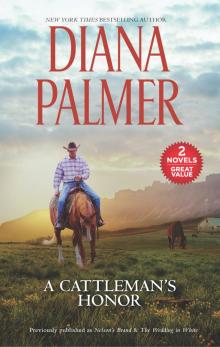 A Cattleman's Honor
A Cattleman's Honor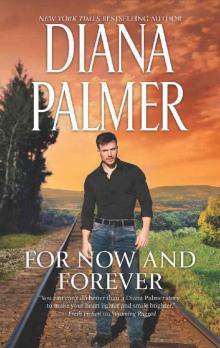 For Now and Forever
For Now and Forever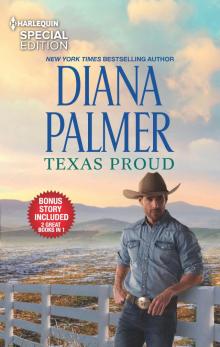 Texas Proud and Circle of Gold
Texas Proud and Circle of Gold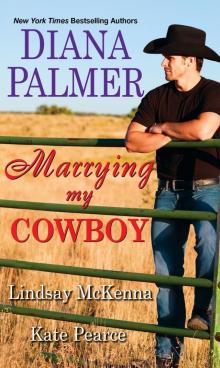 Marrying My Cowboy
Marrying My Cowboy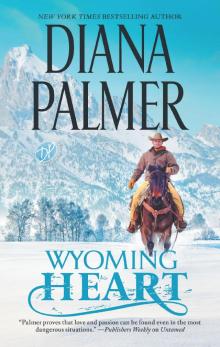 Wyoming Heart
Wyoming Heart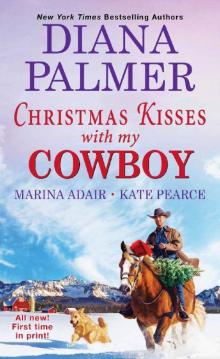 Christmas Kisses with My Cowboy
Christmas Kisses with My Cowboy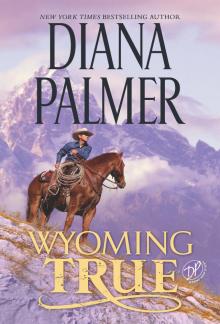 Wyoming True
Wyoming True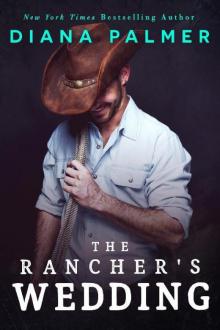 The Rancher's Wedding
The Rancher's Wedding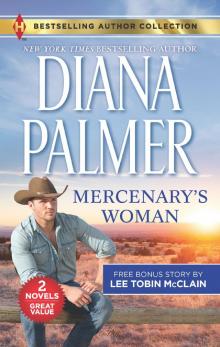 Mercenary's Woman ; Outlawed!
Mercenary's Woman ; Outlawed!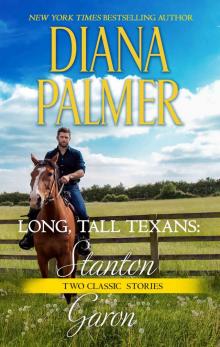 Long, Tall Texans: Stanton ; Long, Tall Texans: Garon
Long, Tall Texans: Stanton ; Long, Tall Texans: Garon Lawless
Lawless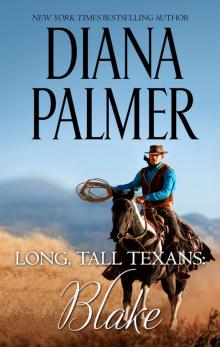 Blake
Blake Escapade
Escapade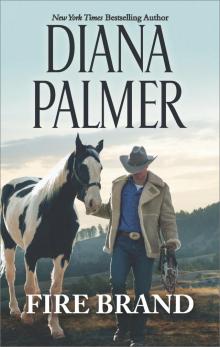 Fire Brand
Fire Brand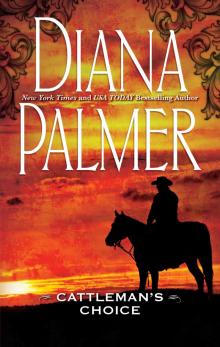 Cattleman's Choice
Cattleman's Choice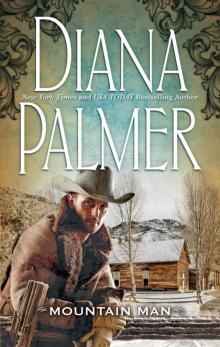 Mountain Man
Mountain Man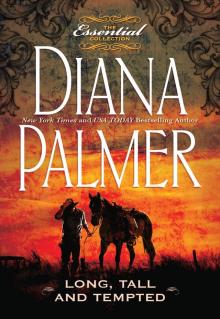 Long, Tall and Tempted
Long, Tall and Tempted A Love Like This
A Love Like This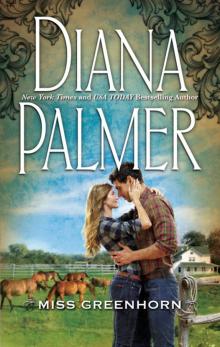 Miss Greenhorn
Miss Greenhorn Magnolia
Magnolia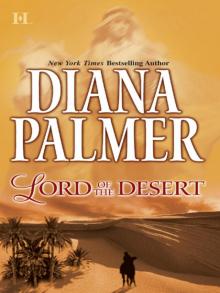 Lord of the Desert
Lord of the Desert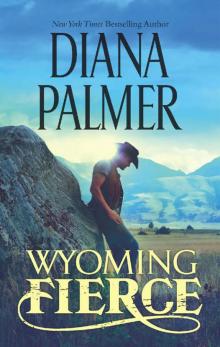 Wyoming Fierce
Wyoming Fierce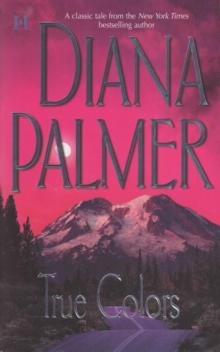 True Colors
True Colors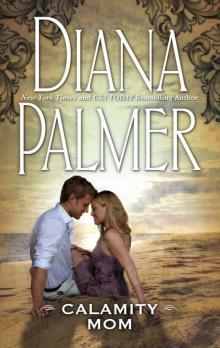 Calamity Mom
Calamity Mom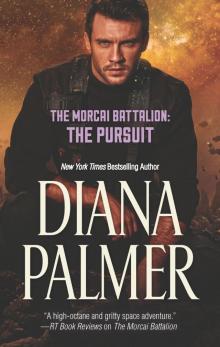 The Pursuit
The Pursuit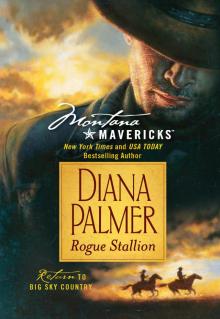 Rogue Stallion
Rogue Stallion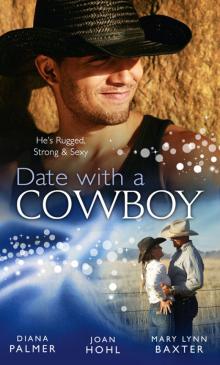 Date with a Cowboy
Date with a Cowboy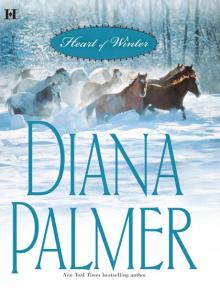 Heart of Winter
Heart of Winter Friends and Lovers
Friends and Lovers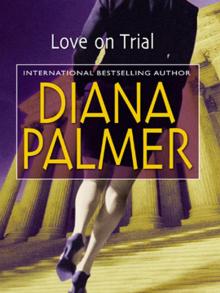 Love on Trial
Love on Trial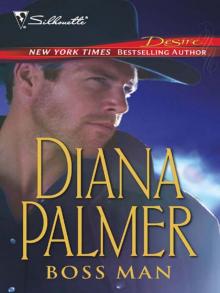 Boss Man
Boss Man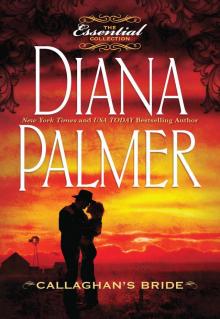 Callaghan's Bride
Callaghan's Bride Before Sunrise
Before Sunrise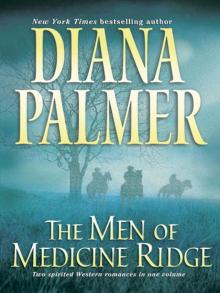 The Men of Medicine Ridge
The Men of Medicine Ridge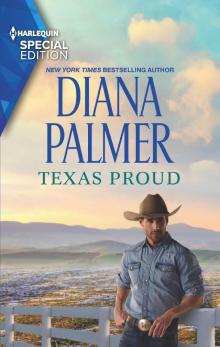 Texas Proud
Texas Proud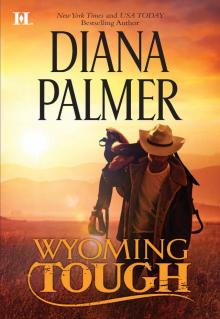 Wyoming Tough
Wyoming Tough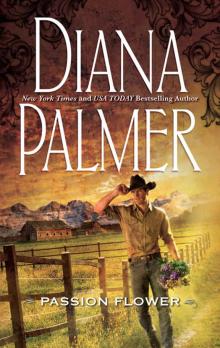 Passion Flower
Passion Flower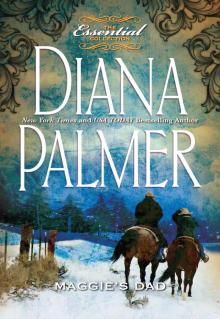 Maggie's Dad
Maggie's Dad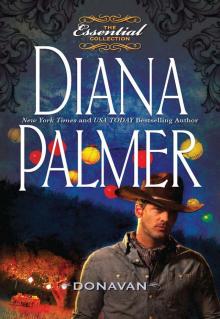 Donavan
Donavan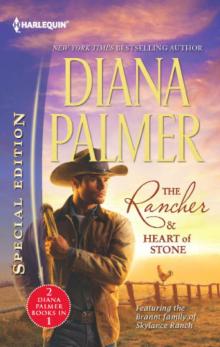 The Rancher & Heart of Stone
The Rancher & Heart of Stone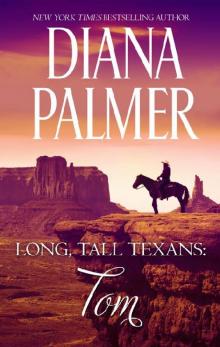 Long, Tall Texans: Tom
Long, Tall Texans: Tom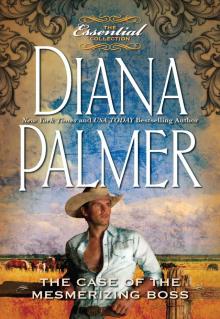 The Case of the Mesmerizing Boss
The Case of the Mesmerizing Boss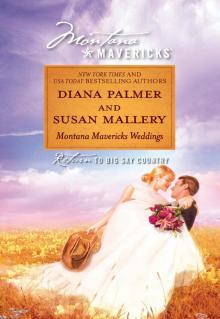 Montana Mavericks Weddings
Montana Mavericks Weddings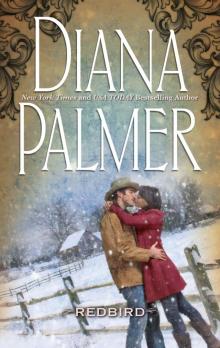 Redbird
Redbird Wyoming Strong
Wyoming Strong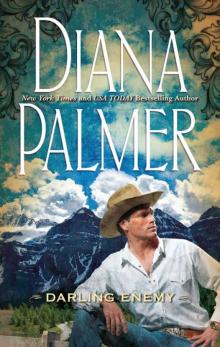 Darling Enemy
Darling Enemy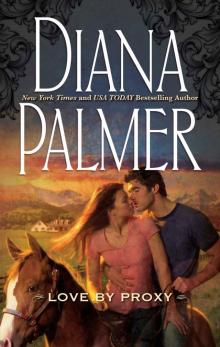 Love by Proxy
Love by Proxy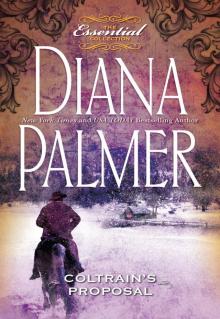 Coltrain's Proposal
Coltrain's Proposal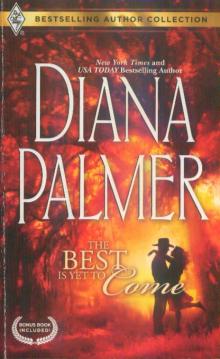 The Best Is Yet to Come & Maternity Bride
The Best Is Yet to Come & Maternity Bride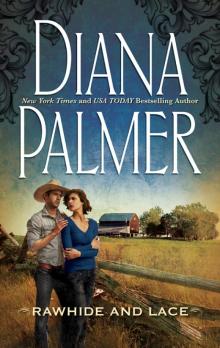 Rawhide and Lace
Rawhide and Lace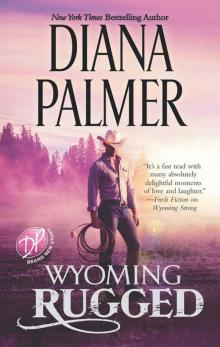 Wyoming Rugged
Wyoming Rugged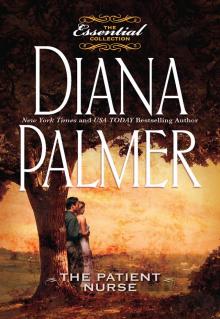 Patient Nurse
Patient Nurse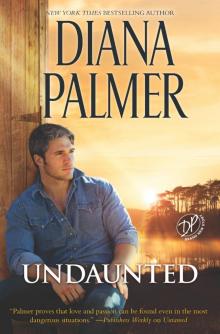 Undaunted
Undaunted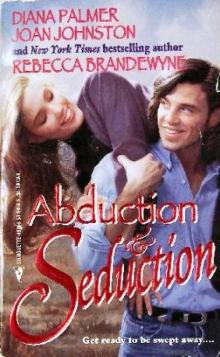 Long Tall Texans Series Book 13 - Redbird
Long Tall Texans Series Book 13 - Redbird Outsider
Outsider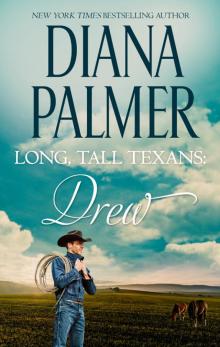 Long, Tall Texans: Drew
Long, Tall Texans: Drew Long, Tall Texans--Christopher
Long, Tall Texans--Christopher Merciless
Merciless A Match Made Under the Mistletoe
A Match Made Under the Mistletoe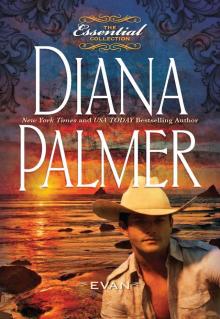 Evan
Evan Hunter
Hunter Now and Forever
Now and Forever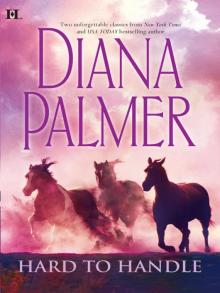 Hard to Handle
Hard to Handle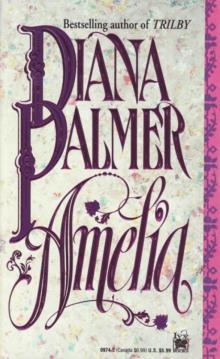 Amelia
Amelia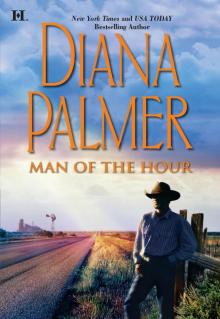 Man of the Hour
Man of the Hour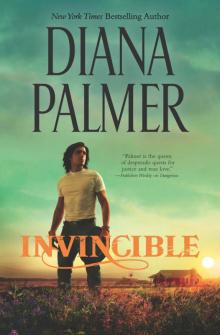 Invincible
Invincible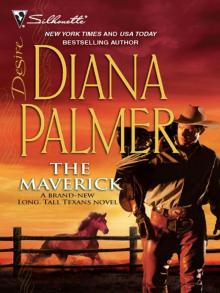 The Maverick
The Maverick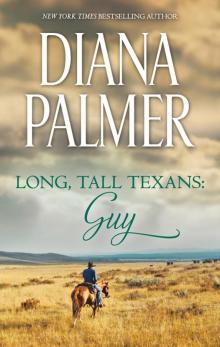 Long, Tall Texans--Guy
Long, Tall Texans--Guy Noelle
Noelle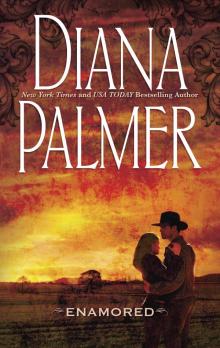 Enamored
Enamored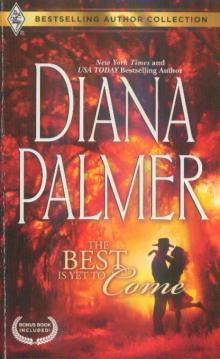 The Best Is Yet to Come
The Best Is Yet to Come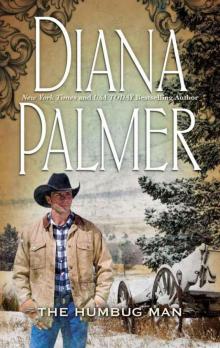 The Humbug Man
The Humbug Man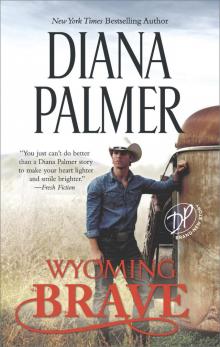 Wyoming Brave
Wyoming Brave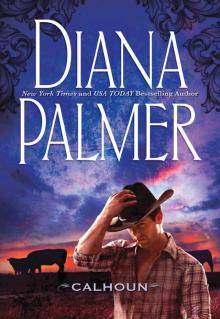 Calhoun
Calhoun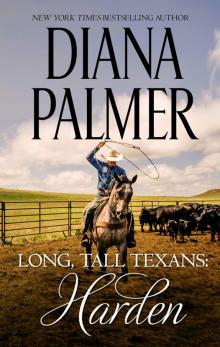 Long, Tall Texans--Harden
Long, Tall Texans--Harden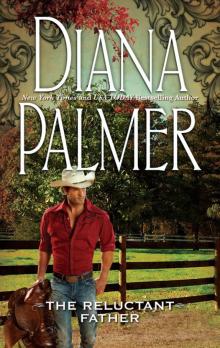 The Reluctant Father
The Reluctant Father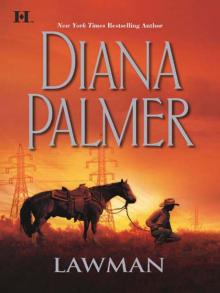 Lawman
Lawman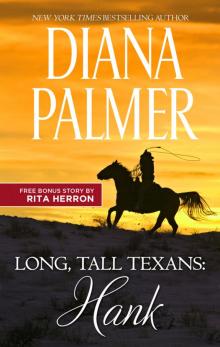 Long, Tall Texans: Hank & Ultimate Cowboy ; Long, Tall Texans: Hank
Long, Tall Texans: Hank & Ultimate Cowboy ; Long, Tall Texans: Hank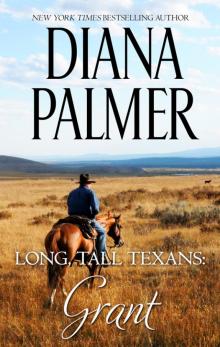 Grant
Grant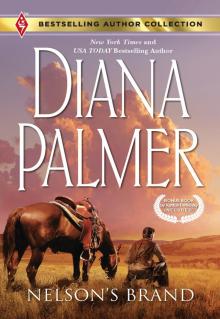 Nelson's Brand
Nelson's Brand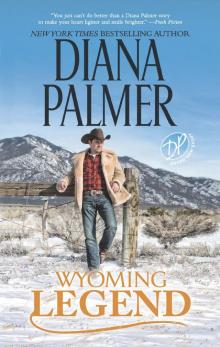 Wyoming Legend
Wyoming Legend Diamond Spur
Diamond Spur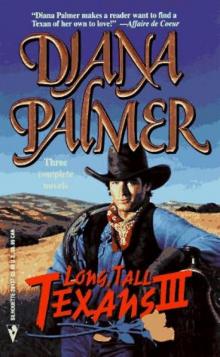 That Burke Man
That Burke Man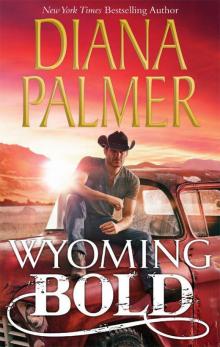 Wyoming Bold (Mills & Boon M&B)
Wyoming Bold (Mills & Boon M&B) Heartless
Heartless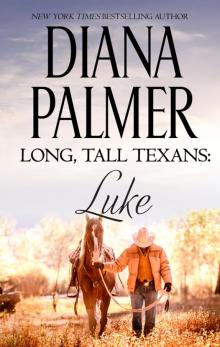 Long, Tall Texans--Luke
Long, Tall Texans--Luke To Have and to Hold
To Have and to Hold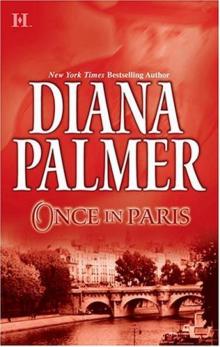 Once in Paris
Once in Paris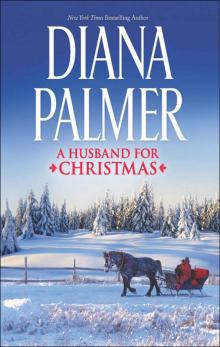 A Husband for Christmas: Snow KissesLionhearted
A Husband for Christmas: Snow KissesLionhearted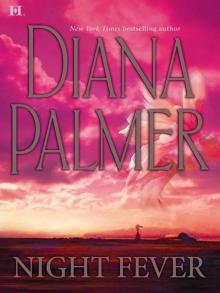 Night Fever
Night Fever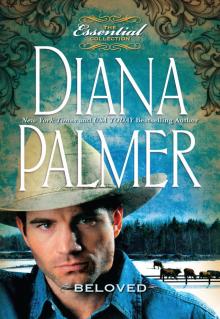 Beloved
Beloved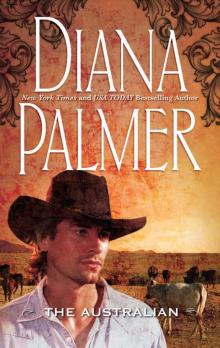 The Australian
The Australian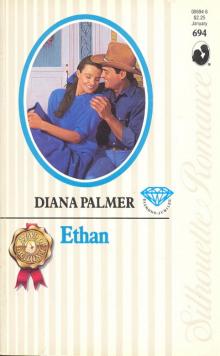 Ethan
Ethan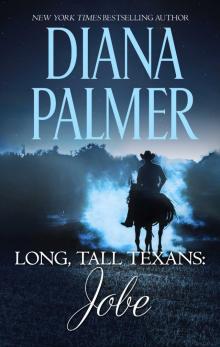 Long, Tall Texans: Jobe
Long, Tall Texans: Jobe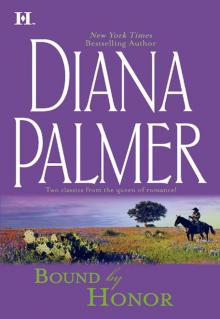 Bound by Honor: Mercenary's WomanThe Winter Soldier
Bound by Honor: Mercenary's WomanThe Winter Soldier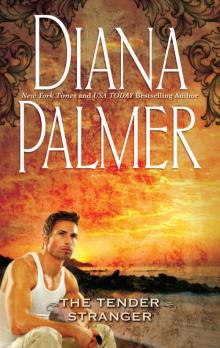 Tender Stranger
Tender Stranger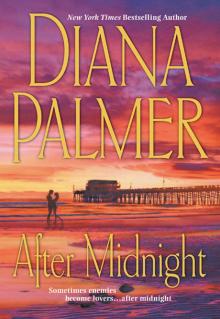 After Midnight
After Midnight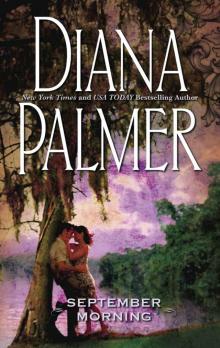 September Morning
September Morning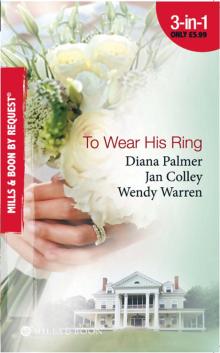 To Wear His Ring
To Wear His Ring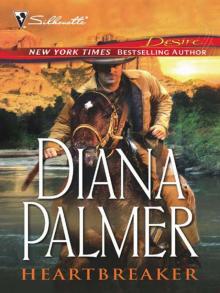 Heartbreaker
Heartbreaker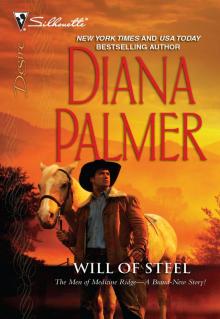 Will of Steel
Will of Steel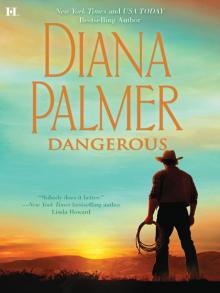 Dangerous
Dangerous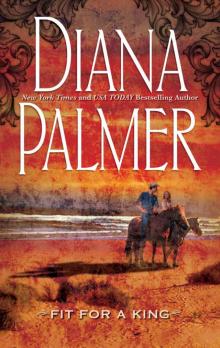 Fit for a King
Fit for a King Diamond in the Rough
Diamond in the Rough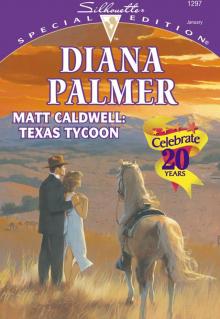 Matt Caldwell: Texas Tycoon
Matt Caldwell: Texas Tycoon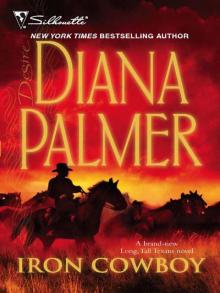 Iron Cowboy
Iron Cowboy Fire And Ice
Fire And Ice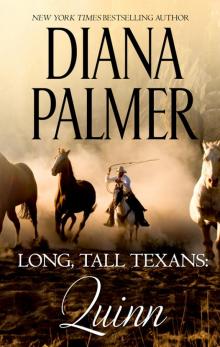 Long, Tall Texans--Quinn--A Single Dad Western Romance
Long, Tall Texans--Quinn--A Single Dad Western Romance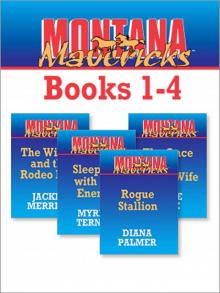 Montana Mavericks, Books 1-4
Montana Mavericks, Books 1-4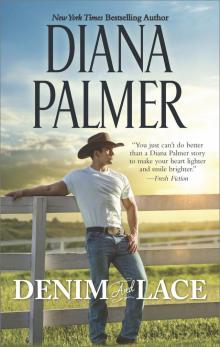 Denim and Lace
Denim and Lace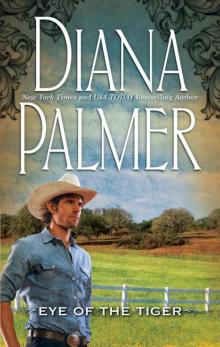 Eye of the Tiger
Eye of the Tiger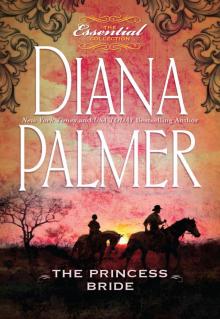 The Princess Bride
The Princess Bride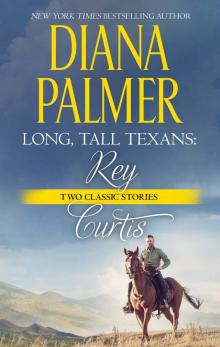 Long, Tall Texans: Rey ; Long, Tall Texans: Curtis ; A Man of Means ; Garden Cop
Long, Tall Texans: Rey ; Long, Tall Texans: Curtis ; A Man of Means ; Garden Cop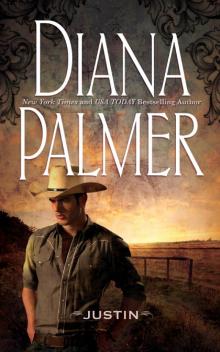 Justin
Justin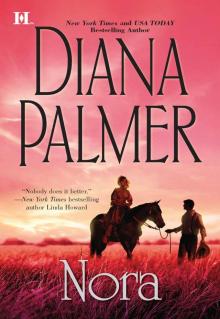 Nora
Nora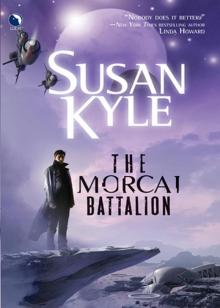 The Morcai Battalion
The Morcai Battalion Heart of Stone
Heart of Stone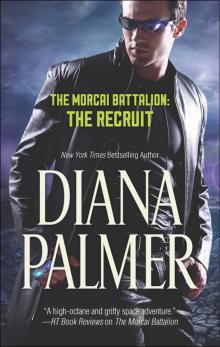 The Morcai Battalion: The Recruit
The Morcai Battalion: The Recruit To Love and Cherish
To Love and Cherish Invictus
Invictus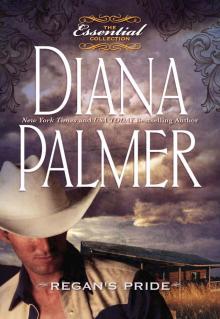 Regan's Pride
Regan's Pride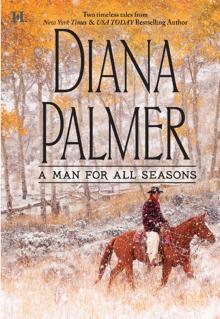 A Man for All Seasons
A Man for All Seasons Sweet Enemy
Sweet Enemy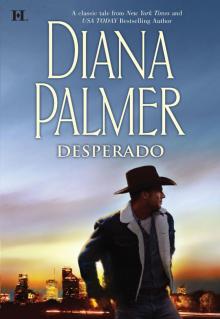 Desperado
Desperado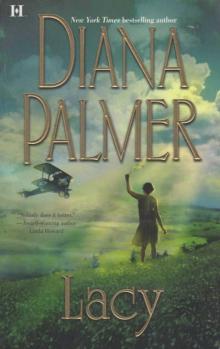 Lacy
Lacy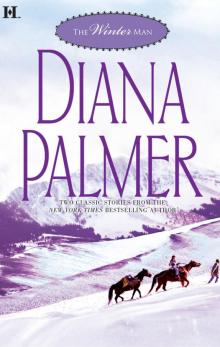 The Winter Man
The Winter Man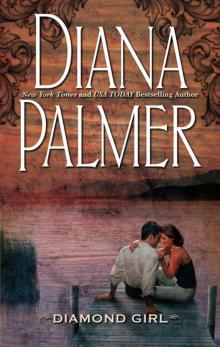 Diamond Girl
Diamond Girl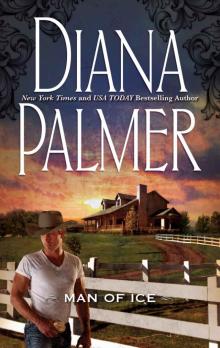 Man of Ice
Man of Ice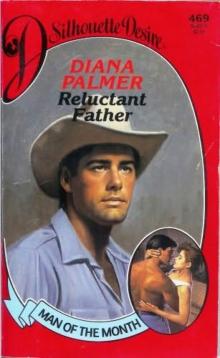 Reluctant Father
Reluctant Father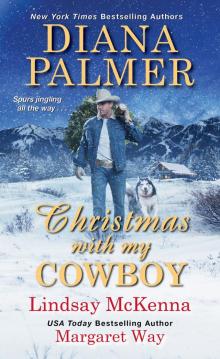 Christmas with My Cowboy
Christmas with My Cowboy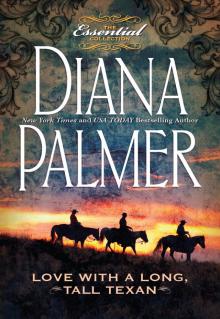 Love with a Long, Tall Texan
Love with a Long, Tall Texan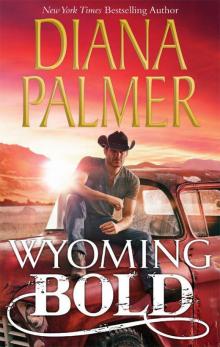 Wyoming Bold wm-3
Wyoming Bold wm-3 King's Ransom
King's Ransom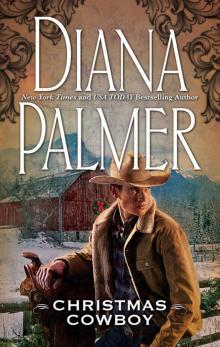 Christmas Cowboy
Christmas Cowboy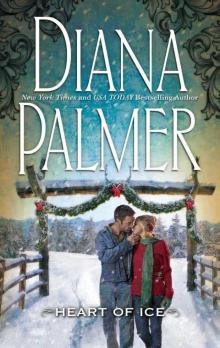 Heart of Ice
Heart of Ice Fearless
Fearless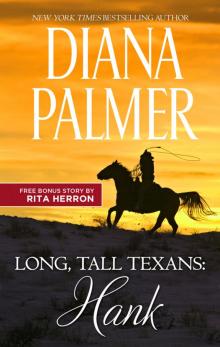 Long, Tall Texans_Hank
Long, Tall Texans_Hank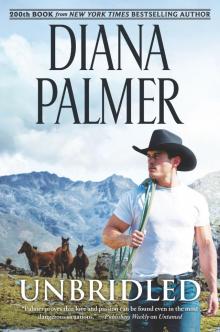 Unbridled
Unbridled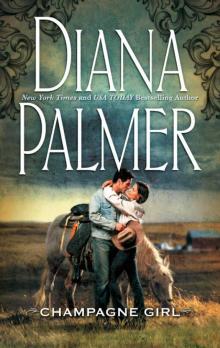 Champagne Girl
Champagne Girl The Greatest Gift
The Greatest Gift Storm Over the Lake
Storm Over the Lake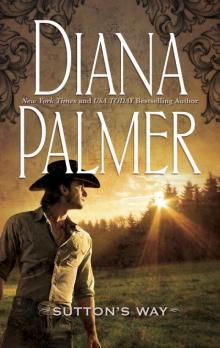 Sutton's Way
Sutton's Way Lionhearted
Lionhearted Renegade
Renegade Betrayed by Love
Betrayed by Love Dream's End
Dream's End All That Glitters
All That Glitters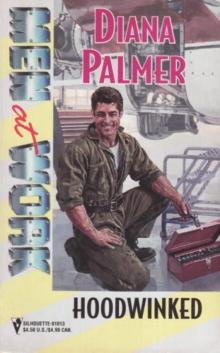 Hoodwinked
Hoodwinked Soldier of Fortune
Soldier of Fortune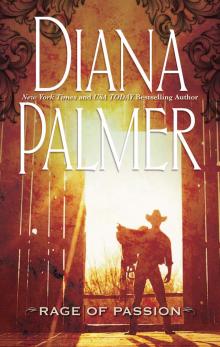 Rage of Passion
Rage of Passion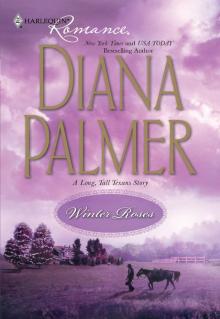 Winter Roses
Winter Roses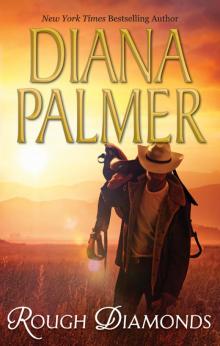 Rough Diamonds: Wyoming ToughDiamond in the Rough
Rough Diamonds: Wyoming ToughDiamond in the Rough Protector
Protector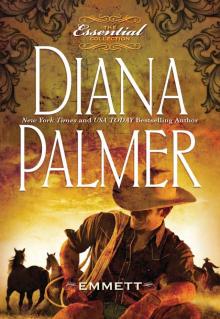 Emmett
Emmett True Blue
True Blue The Tender Stranger
The Tender Stranger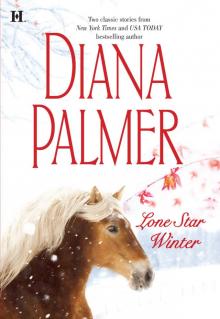 Lone Star Winter
Lone Star Winter Man in Control
Man in Control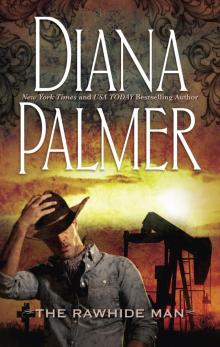 The Rawhide Man
The Rawhide Man Untamed
Untamed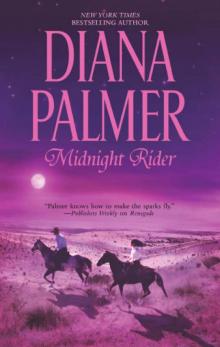 Midnight Rider
Midnight Rider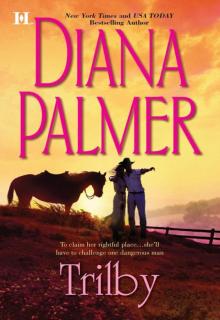 Trilby
Trilby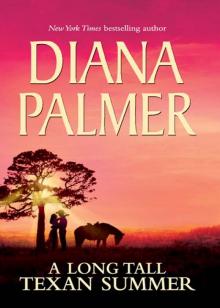 A Long Tall Texan Summer
A Long Tall Texan Summer Tangled Destinies
Tangled Destinies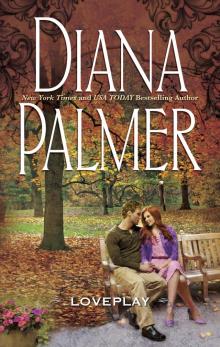 LovePlay
LovePlay Blind Promises
Blind Promises Carrera's Bride
Carrera's Bride Calamity Mum
Calamity Mum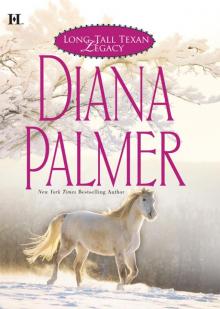 Long, Tall Texan Legacy
Long, Tall Texan Legacy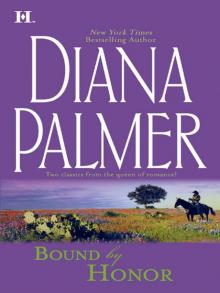 Bound by Honor
Bound by Honor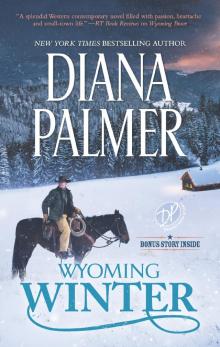 Wyoming Winter--A Small-Town Christmas Romance
Wyoming Winter--A Small-Town Christmas Romance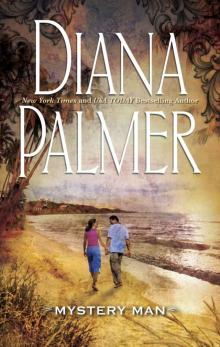 Mystery Man
Mystery Man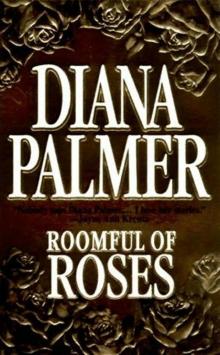 Roomful of Roses
Roomful of Roses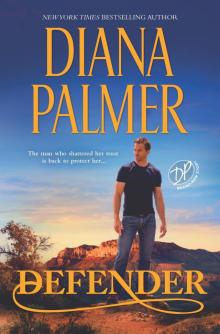 Defender
Defender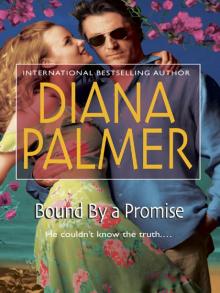 Bound by a Promise
Bound by a Promise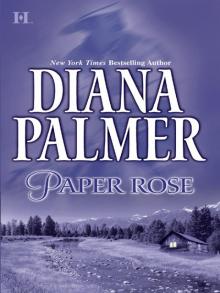 Paper Rose
Paper Rose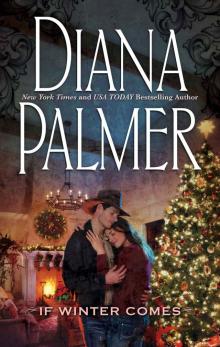 If Winter Comes
If Winter Comes Circle of Gold
Circle of Gold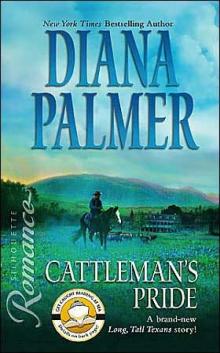 Cattleman's Pride
Cattleman's Pride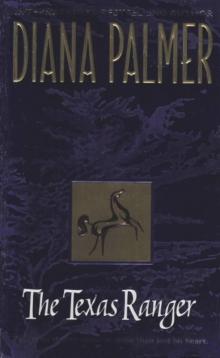 The Texas Ranger
The Texas Ranger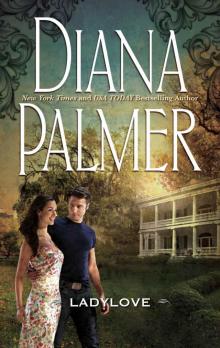 Lady Love
Lady Love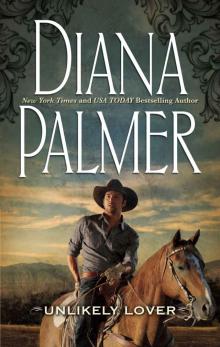 Unlikely Lover
Unlikely Lover A Man of Means
A Man of Means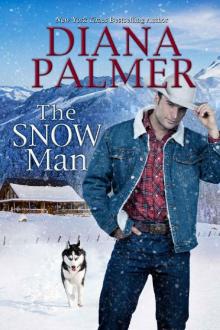 The Snow Man
The Snow Man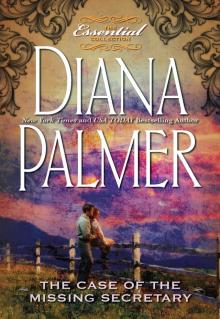 The Case of the Missing Secretary
The Case of the Missing Secretary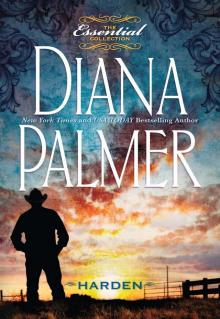 Harden
Harden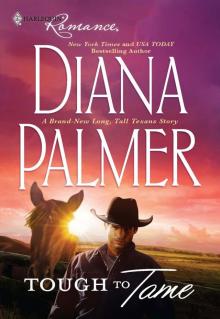 Tough to Tame
Tough to Tame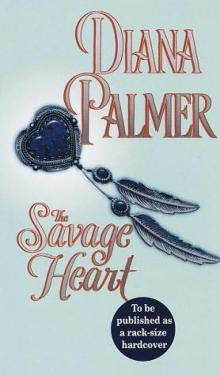 The Savage Heart
The Savage Heart